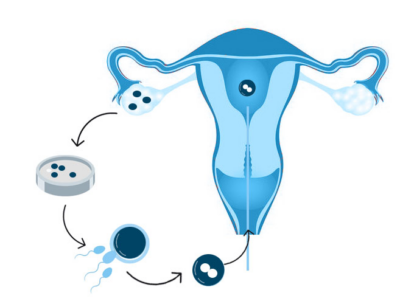Gastroenteritis, usually called the belly flu, is an infection of the belly and intestines. It can purpose a bunch of ugly signs and substantially disrupt day-by-day life. Understanding the signs is crucial for early intervention and powerful management.
Table of Contents
What Causes Gastroenteritis?
Viral Infections
Viruses like norovirus and rotavirus are the most unusual culprits. They are pretty contagious and spread fast in crowded spaces.
Bacterial Infections
Bacteria such as E. Coli and Salmonella can cause gastroenteritis via contaminated food or water.
Parasites
In some instances, parasites like Giardia can lead to prolonged signs of gastroenteritis.
How Does Gastroenteritis Spread?
Contaminated Food and Water
Consuming improperly cooked food or ingesting unsafe water can introduce harmful pathogens.
Person-to-Person Transmission
Close contact with an inflamed character can without problems unfold the contamination.
Poor Hygiene Practices
Not washing arms after using the toilet or before dealing with meals can substantially increase the hazard.
Key Signs and Symptoms of Gastroenteritis
Digestive Symptoms
- Nausea and Vomiting: A surprising feeling of queasiness accompanied using vomiting is a hallmark sign.
- Diarrhea: Frequent, watery stools are not unusual and might result in dehydration.
Physical Discomfort
- Abdominal Pain and Cramps: Sharp or dull pains in the belly vicinity are common complaints.
- Bloating: An uncomfortable feeling of fullness is regularly stated.
Systemic Symptoms
- Fever and Chills: A moderate fever accompanied using chills shows an immune response.
- Fatigue: The body feels tired due to dehydration and loss of electrolytes.
Severe Symptoms That Require Medical Attention
Some instances of gastroenteritis might also result in greater excessive signs, which include:
- Persistent Dehydration: Signs include dry mouth, sunken eyes, and decreased urination.
- Bloody Stools: This might also suggest a greater severe contamination.
- High Fever: A temperature above 39°C can signify an extreme condition.
How to Diagnose Gastroenteritis?
Doctors generally diagnose gastroenteritis via:
- Physical Examination: Assessing signs and checking for dehydration.
- Stool Tests: Identifying the precise pathogen.
- Blood Tests: Rule out different situations if wished.
Home Remedies to Relieve Gastroenteritis Symptoms
- Staying Hydrated: Sip on water, clear broths, or oral rehydration solutions.
- Eating Light, Bland Foods: Bananas, rice, applesauce, and toast (the BRAT weight-reduction plan) may be soothing.
- Avoiding Dairy and Fatty Foods: These can cause worse symptoms.
Over-the-Counter Medications
- Antidiarrhoeal Medicines: Help lessen the frequency of diarrhea.
- Rehydration Salts: Restore misplaced electrolytes.
- Pain Relievers: Alleviate headaches and body aches.
When to See a Doctor
If signs persist beyond 3 days or worsen significantly, consult a healthcare professional.
Preventing Gastroenteritis
- Practising Good Hygiene: Wash hands regularly with soap.
- Safe Food Handling: Cook food thoroughly and store it at proper temperatures.
- Staying Cautious While Travelling: Avoid road food and drink bottled water.
The Role of Diet in Recovery
Foods to Eat
Stick to effortlessly digestible ingredients like boiled potatoes, toast, and crackers.
Foods to Avoid
Steer clear of caffeine, highly spiced dishes, and greasy food.
Complications of Untreated Gastroenteritis
Neglecting the circumstance can result in the following:
- Chronic Dehydration
- Electrolyte Imbalance
Gastroenteritis in Children
Children are particularly inclined. Watch out for signs like lethargy and dry nappies, and make sure they drink fluids regularly.
Gastroenteritis vs. Food Poisoning
While each proportion of signs, gastroenteritis regularly includes viral or bacterial infections, food poisoning is linked mainly to contaminated food.
Conclusion
Recognizing the signs of gastroenteritis early can make a massive distinction between recovery time and luxury. By staying knowledgeable and practicing the right hygiene, you could reduce the hazard of this commonplace contamination.
FAQs
How long does gastroenteritis last?
Most cases are remedied within 1–3 days, but a few may last longer depending on the purpose.
Can gastroenteritis be averted?
Yes, maintaining precise hygiene and food protection practices can notably lower the danger.
Is gastroenteritis contagious?
Absolutely, especially viral gastroenteritis. It spreads quick in close quarters.
What must I devour for the duration of recovery?
Stick to bland foods like rice, bananas, and toast to avoid demanding the belly.
Are antibiotics important for remedy?
Not always. They are simplest prescribed for bacterial gastroenteritis, or even then, most effective in extreme cases.









Comments on "WellHealthOrganic Explains: Key Signs of Gastroenteritis You Should Never Ignore" :